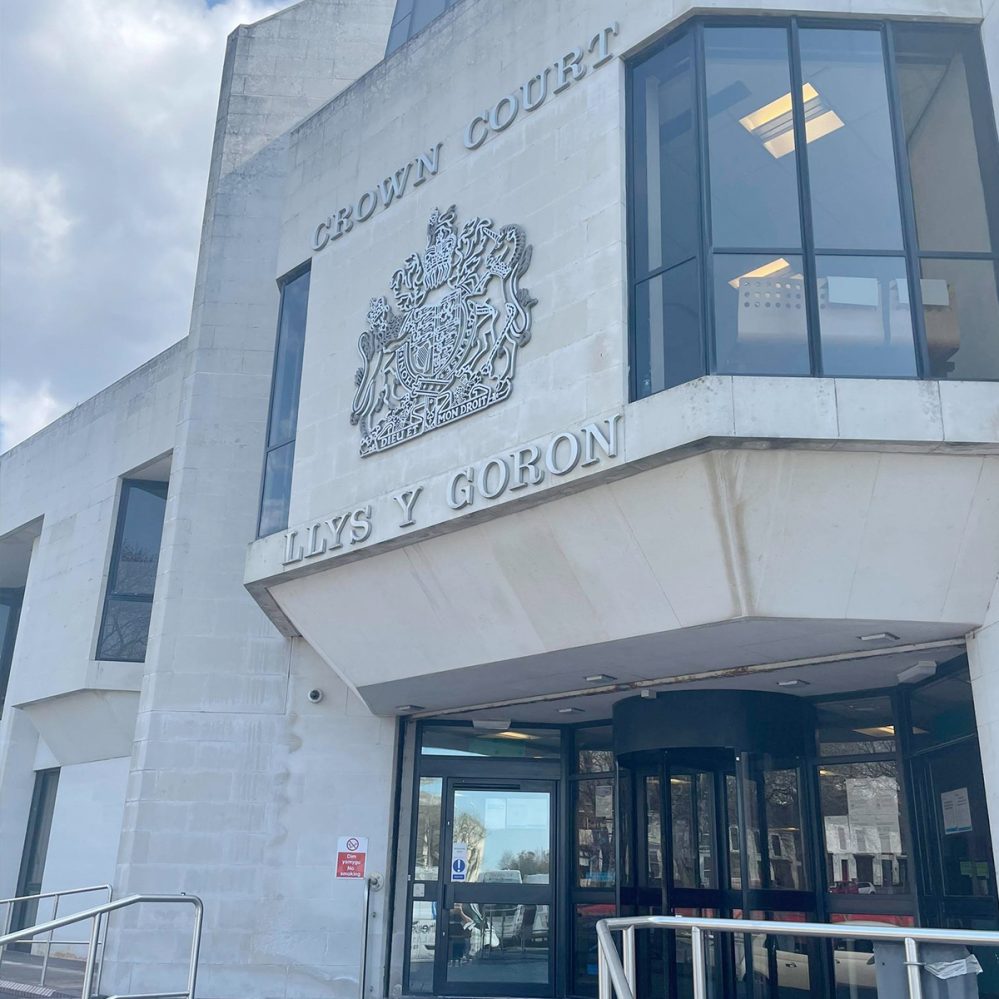News
Triumph on discriminatory ‘bedroom tax’
IN A BLOW to the UK’s Conservative government and a victory for carers for the disabled, the High Court in London has decided that the bedroom tax is unfair and discriminatory against the disabled and their carers.
In a judgement which wholly rejects representations made by the Department for Work and Pensions, a panel of judges led by Lord Chief Justice Tomlinson found in favour of a Pembrokeshire couple who had brought the action.
The successful appeal against a lower Court’s decision was made by Paul and Susan Rutherford, acting as litigation friends for the grandson, Warren.
Paul and Susan Rutherford from Pembrokeshire who care for their 14-year-old grandson Warren in a specially adapted home that includes a room for professional carers to stay in overnight, had their housing benefit reduced as they were deemed to have a spare bedroom. Warren, suffers from Potokoi-Shaffer Syndrome, a very rare genetic disorder which means he is unable to walk or talk, and needs 24 hour care by at least two people at all times.
The Conservatives’ bedroom tax meant that a bedroom used by overnight carers who look after him was counted as an additional bedroom whose presence in the family home was surplus to the family’s requirements.
Opposition politicians in Wales were swift to hail the result of the court case.
Rebecca Evans AM, Assembly Member for Mid and West Wales, sent her heartfelt congratulations to Paul, Susan and Warren on the news.
Following the Court of Appeal decision, Mrs Evans said: “I am delighted for the Rutherfords. Having visited them at home and discussed their situation I know how long and hard-fought this battle has been. It has long been clear to me that the ‘hated Bedroom tax’ is discriminatory.
“Let there be no mistake, the bedroom tax is nothing more than an ideological attack on struggling households. It is a disgrace that the majority of affected households have disabled residents. Once again, the UK Government is hitting the most vulnerable people hardest.”
Plaid Cymru Assembly Member Simon Thomas said: “The bedroom tax is a cruel policy that has been widely discredited, and criticised by United Nations inspectors as being inhumane. This latest judgement has to be welcome. Plaid Cymru has opposed the bedroom tax at every opportunity in Westminster.”
Simon Thomas continued: “The Rutherford family are to be congratulated for the compassion and care they have shown their grandson and the way they have been prepared to fight this case, even though the bedroom tax was being met by a discretionary housing payment in their circumstances. They should be awarded a medal for the way they have dedicated their lives, not penalised for having a room in the house to accommodate overnight carers.
“Families with disabled members need to be exempted from the tax immediately. Many homes occupied by disabled individuals and families have been adapted for their use at public expense. It is a nonsense to force them to move.”
William Powell, Welsh Liberal Democrat for AM for Mid and West Wales, told The Herald: “All the evidence shows that the so-called bedroom tax is unfair and needs radical reform. Despite this, the Tories stick their heads in the sand and continue to punish the most vulnerable in our society.
“The Welsh Liberal Democrats believe in protecting the most vulnerable people, which is why we have argued that disabled adults and children should be permanently exempt from this policy. This is a particular concern to parents of children and young people with autism and related conditions, as members of NAS Pembrokeshire Branch have raised with me.
“There can be no question that reform is needed, so that people who are unable to downsize because of the lack of an alternative home aren’t hit by this cut in their Housing Benefit.”
Owen Smith MP, Labour’s Shadow Work and Pensions Secretary, said: “I’ve met Paul and spoke about his brave struggle at Labour conference. The fight his family have led against the Bedroom Tax should be an inspiration for all of us to stand up and campaign for what’s right.
“This victory in the Court of Appeal is a massive blow to the Tories’ Bedroom Tax. It provides a glimmer of hope for the hundreds of thousands of people who have been hit by this cruel policy.”
Secretary of State for Wales Stephen Crabb told us: “As made clear by the DWP following today’s judgement, the Government has committed to giving local councils over £870 million in extra funding over the next five years so that they can offer payments to families in difficult circumstances to ensure they don’t lose out. The Rutherford family were receiving these payments from Pembrokeshire County Council, meaning they were being awarded the same amount of housing benefit as before the reforms were introduced.
“The discretionary housing payments system is an effective safety net that helps support vulnerable residents as welfare reforms are introduced. Local councils must act fairly and reasonably when considering whether to offer the discretionary payment.”
The point made by Mr Crabb – that discretionary direct housing payments (DHP – in respect to which the Court noted future commitment is ‘uncertain’) are sufficient for the state to discharge its burden of care was one rejected by the Court. It is legal argument over whether a discretionary and temporary policy, such as DHP, can displace the absolute requirement not to discriminate against members of an easily identifiable group under UK law, which is likely to dominate any appeal the government launches against the Court decision.
Lord Justice Tomlinson and Lord Justice Vos, also pointed out that the “admitted discrimination” in each case “has not been justified by the Secretary of State”
Leading disability charity the Papworth Trust, which has been campaigning since 2013 for a fairer system for disabled people affected by the bedroom tax Papworth Trust welcomed the Court of Appeal ruling.
The charity’s research found that nine in 10 disabled people were being forced to cut back on food or pay household bills after being refused emergency housing payments to help them pay the spare room subsidy. It made written submissions in support of the Rutherfords at an earlier hearing.
Vicky McDermott, chief executive of Papworth Trust, said: “Ensuring disabled people do not lose out under the ‘bedroom tax’ policy has long been a priority for Papworth Trust.
“We have worked closely with concerned families, like the Rutherford’s, and have seen first-hand the worry and angst this has caused.
“We heard from families who were considering downsizing, even though it would mean their quality of life would drastically suffer, while others saw their spare room as a crucial lifeline to sleep carers or house disability equipment like wheelchairs and hoists.
“So we are delighted with the Court of Appeal ruling and how it will directly help Paul, Sue and Warren as well as disabled youngsters and their families in the future.”
Emily Holzhausen, Director of Policy and Public Affairs at Carers UK, gave a statement of evidence in the original case which was referenced in the Court’s judgment. Ms Holzhausen argued that families who have a clear need for additional bedrooms for a carer should be entitled to an additional room; and that alternatives suggested by the government – such as moving to smaller accommodation or taking in a lodger – are not appropriate for carers.
Carers UK told The Herald that 60,000 carers are currently affected by the bedroom tax.
Heléna Herklots, Chief Executive of Carers UK, said: “This policy is having a catastrophic impact on families, many of whom are already struggling practically, emotionally and financially to care for seriously-ill or disabled loved ones.
“Carers UK has argued that the policy unfairly penalises carers since it was first introduced in April 2013. Our research shows that those carers who are affected by the bedroom tax are being left unable to pay their electricity and heating bills and some families are falling behind on their rent and facing eviction.
“Following today’s ruling, we urge the Government to amend the regulations to protect carers and their families. The policy is clearly having a devastating impact on vulnerable families and the Government cannot allow this to continue.”
Mr Rutherford told the BBC: “I’m a bit lost for words. I could almost cry with happiness.
“It was just so unfair, somebody had to do something to get the law changed, or the situation changed.”
He added: “We’re all saving the government millions of pounds between us and we need looking after and helping, rather than penalising. us.”
We invited a comment from local Conservative AMs Paul Davies and Angela Burns. Our request was not acknowledged and no statement was received from them at the time this article went to press.
News
Pembroke Dock man sent to Crown Court over alleged ABH assault

Charge relates to incident in the town last weekend
A PEMBROKE DOCK man has been sent to the Crown Court for trial after appearing before magistrates accused of assault causing actual bodily harm.
Darren Markes, aged 47, of High Street, Pembroke Dock, appeared at Haverfordwest Magistrates’ Court on Monday (Dec 15).
The court heard that Markes is charged with assault occasioning actual bodily harm, contrary to the Offences Against the Person Act.
The charge relates to an alleged incident on Friday (Dec 13) in Pembroke Dock, when it is alleged that Markes assaulted a woman, causing her actual bodily harm.
No plea was entered at the hearing.
Due to the seriousness of the allegation, magistrates declined jurisdiction and ordered that the case be sent to the Crown Court for trial under the Crime and Disorder Act.
Markes was remanded on conditional bail. Conditions include:
- Not contacting a witness, directly or indirectly
- Reporting to Pembroke Dock police station every Wednesday between 12:00pm and 2:00pm
- Living and sleeping each night at his home address
He is due to appear at Swansea Crown Court on Thursday (Jan 16) at 9:30am for a plea and trial preparation hearing.
Crime
Aberystwyth man denies criminal damage charge over Cardigan gallery window

Alleged incident said to have taken place on Bridge Street
AN ABERYSTWYTH man has denied a charge of criminal damage relating to an alleged incident in Cardigan.
Ricky Myers, aged 27, of Jasper House, Aberystwyth, appeared at Haverfordwest Magistrates’ Court on Monday (Dec 15).
The court heard that Myers is accused of criminal damage to property valued under £5,000, contrary to the Criminal Damage Act 1971.
The charge relates to an incident on Saturday (Aug 24, 2024) at Manchester House on Bridge Street, Cardigan, where it is alleged that a window at the Cardigan Gallery was damaged. The property is said to belong to Peter Austin.
Myers pleaded not guilty to the allegation.
Magistrates adjourned the case for further case management, and Myers was remanded on conditional bail, with a condition that he live and sleep each night at his home address.
He is due to return to court at Aberystwyth Magistrates’ Court on Wednesday (Dec 17) at 2:00pm.
Crime
Pembroke Dock man remanded in custody ahead of sentencing on string of offences

Harassment charge and three assaults among cases listed for Llanelli court
A PEMBROKE DOCK man has been remanded in custody ahead of sentencing after admitting a series of offences, including harassment and assaults.
Tony Brundrett, aged 21, of Kavanagh Court, Pembroke Dock, appeared at Haverfordwest Magistrates’ Court on Monday (Dec 15).
The court heard Brundrett has pleaded guilty to harassment without violence, contrary to the Protection from Harassment Act. The charge alleges that between Tuesday (Sep 17) and Thursday (Oct 31) at Spring View, Pembroke Dock, he pursued a course of conduct amounting to harassment of a female, including attending her home address and contacting her by text message.
He has also admitted assault by beating against the same female, alleged to have taken place on Wednesday (May 21) at Spring View, Pembroke Dock, and a further assault by beating against a second female on Thursday (Oct 30), also at Spring View.
Magistrates were additionally told that Brundrett faces a further allegation of common assault against a third female, said to have occurred on Tuesday (Dec 9) at Kavanagh Court, Pembroke Dock. No plea was recorded to that matter in the register entry.
Brundrett has also pleaded guilty to a number of offences linked to an incident in Haverfordwest on Saturday (Nov 16). These include:
- Aggravated vehicle taking, involving a Vauxhall Corsa, with damage caused before recovery
- Using a motor vehicle without insurance
- Driving otherwise than in accordance with a licence
- Criminal damage, involving a window belonging to Pembrokeshire County Council
He was remanded in custody, with the next hearing listed at Llanelli Magistrates’ Court on Wednesday (Dec 31) at 10:00am.
-

 Crime7 days ago
Crime7 days agoPhillips found guilty of raping baby in “worst case” judge has ever dealt with
-

 Crime5 days ago
Crime5 days agoKilgetty scaffolder sentenced after driving with cocaine and in system
-

 Crime6 days ago
Crime6 days agoHousing site director sentenced after failing to provide breath sample following crash
-

 News1 day ago
News1 day agoDyfed-Powys Police launch major investigation after triple fatal crash
-

 Crime5 days ago
Crime5 days agoMotorist banned for three years after driving with cannabis in system
-

 Crime2 days ago
Crime2 days agoMan spared jail after baseball bat incident in Milford Haven
-

 Education5 days ago
Education5 days agoTeaching assistant struck off after asking pupil for photos of her body
-

 Crime6 days ago
Crime6 days agoMilford Haven pensioner denies exposure charges

























